Coming from a family with a tradition of silversmiths, Nguyen Quang Sang was expected to follow in his footsteps in the "money-making" goldsmithing profession. Unexpectedly, the war broke out and he joined the army at the age of 14, then turned to writing and went all the way to literature with many immortal works. He was honored to be awarded the Ho Chi Minh Prize in 2000.
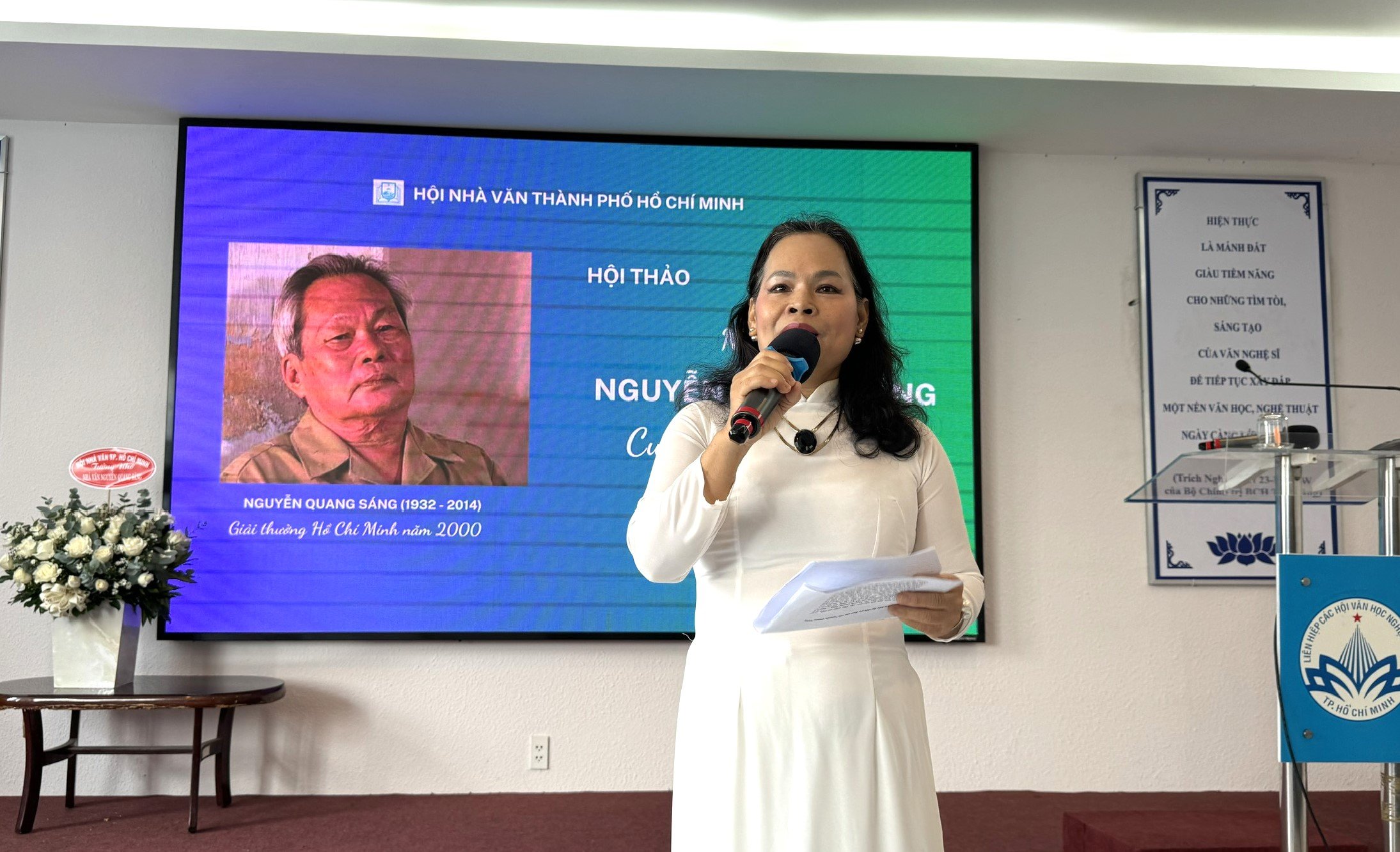
Writer Tram Huong shares about writer Nguyen Quang Sang at the workshop
According to writer Hoai Huong, when analyzing the two words "Quang - Sang" in his name and middle name, when he was alive, writer Nguyen Quang Sang once told his colleagues: "Quang means bright, and Sang also means bright, but my parents were not Confucian scholars so they did not have any high expectations. They only hoped that their children would become good people, not only benefiting the country and family but also bringing glory to their ancestors. Whether or not they achieved it depends on whether they themselves were aware of that expectation or not. Just for fun, Sang - Sang placed next to each other, in language means not very bright, and what is not very bright sometimes attracts people's curiosity".
Speaking at the workshop, President of the Ho Chi Minh City Writers Association Trinh Bich Ngan affirmed: "He brings to the literary world a distinctive Southern quality. That Southern flavor does not stop at the Southern landscape, but is expressed more clearly through the Southern language and Southern character. Reading his writing, it is easy to imagine a Southern space filled with openness, friendliness, generosity and tolerance. Writer Nguyen Quang Sang is not only a "golden bird" of Southern literature but also a unique entry in the Vietnamese literary dictionary."
He boldly compared him to "a person like no other", according to writer Hoai Huong: "Nguyen Quang Sang has a very strange way of working: when writing, he has to listen to music. Perhaps that's why he was the first person to whom musician Hoang Viet shared the immortal melody of Love Song when it was just forming the first parts, so that when it was completed, he was also the first person to enjoy it before publishing. He is also known as a writer who writes about the fate of Southern people during the war. But in peacetime, he did not stand outside of worldly affairs. His last work before passing away was still about human fate. A farmer after the war went to the city to make a living, after decades in the city, he also became famous and became a person, returned to his hometown, faced with the losses - gains and injustices of the countryside, so he wanted to change so that his hometown could be better, the villagers could live in peace and have justice...".
Writer Tram Huong shared an interesting story about the author of Ivory Comb from another perspective, which is "opening the warehouse" of his wartime letters: "I was fascinated to read and paused for a long time on the letters of writer Nguyen Quang Sang. I read them over and over again, it was interesting and touching to discover many hidden factors that made up the lasting value of the works he wrote during wartime and the appeal of the works he wrote during peacetime."
"The letters from the battlefield still smell of gunpowder, all stained with time. And deep in the letters, I know he still has regrets and worries about the books he has cherished since the fierce war, about his comrades like Hoang Viet, Le Anh Xuan, Hoang Anh... that he has not had time to write yet," writer Tram Huong was moved.
Source: https://thanhnien.vn/nhung-hoi-uc-dep-ve-cay-dai-thu-van-chuong-nam-bo-185241207002359231.htm





![[Photo] Binh Trieu 1 Bridge has been completed, raised by 1.1m, and will open to traffic at the end of November.](https://vphoto.vietnam.vn/thumb/1200x675/vietnam/resource/IMAGE/2025/10/2/a6549e2a3b5848a1ba76a1ded6141fae)




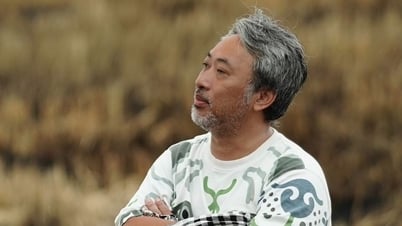
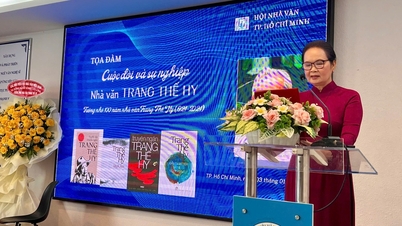


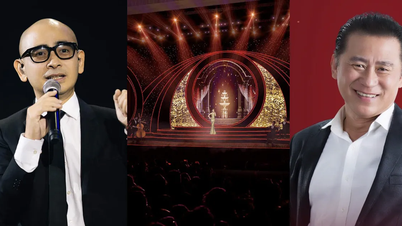

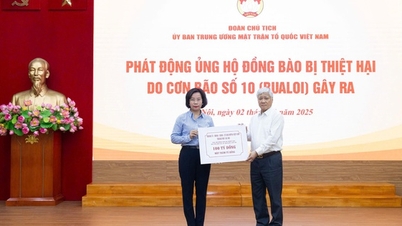




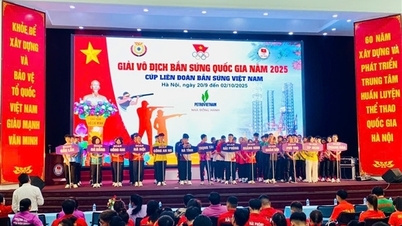
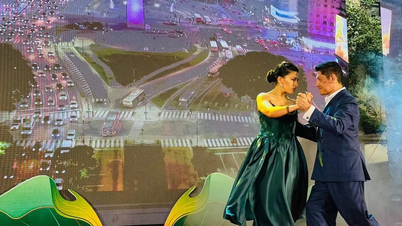






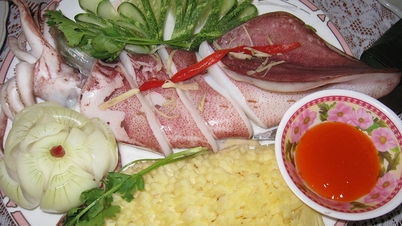



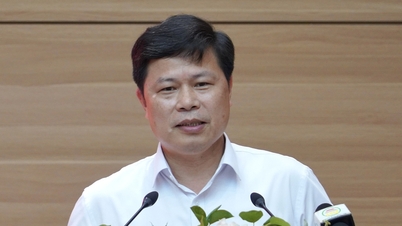


















































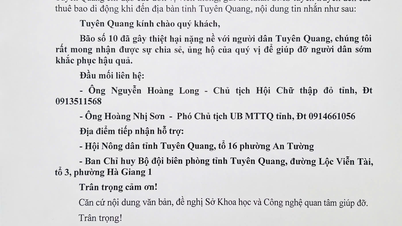

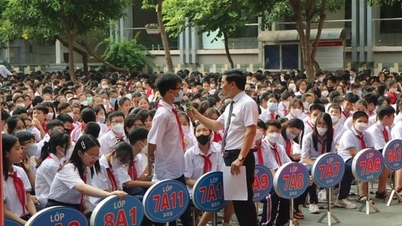














Comment (0)